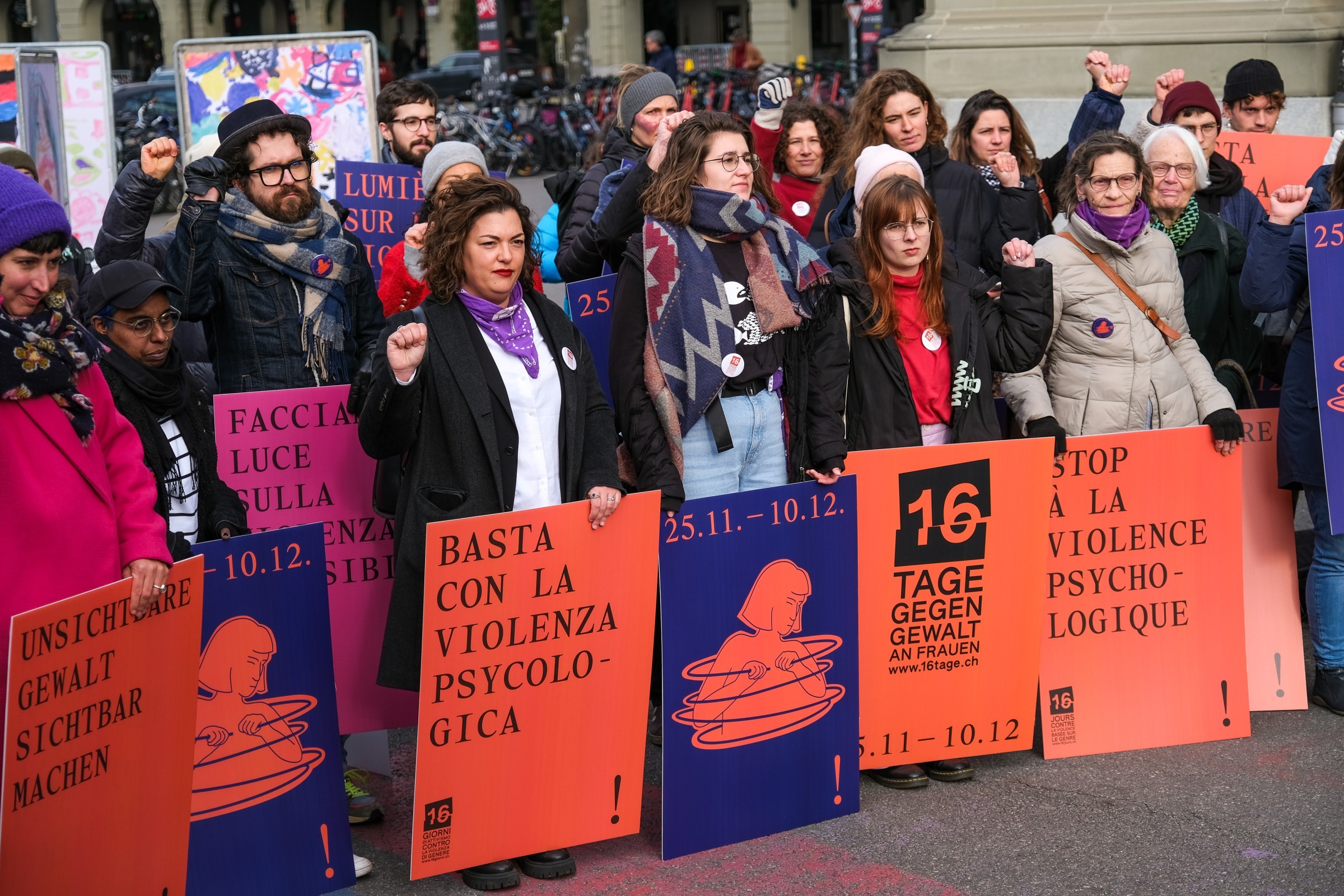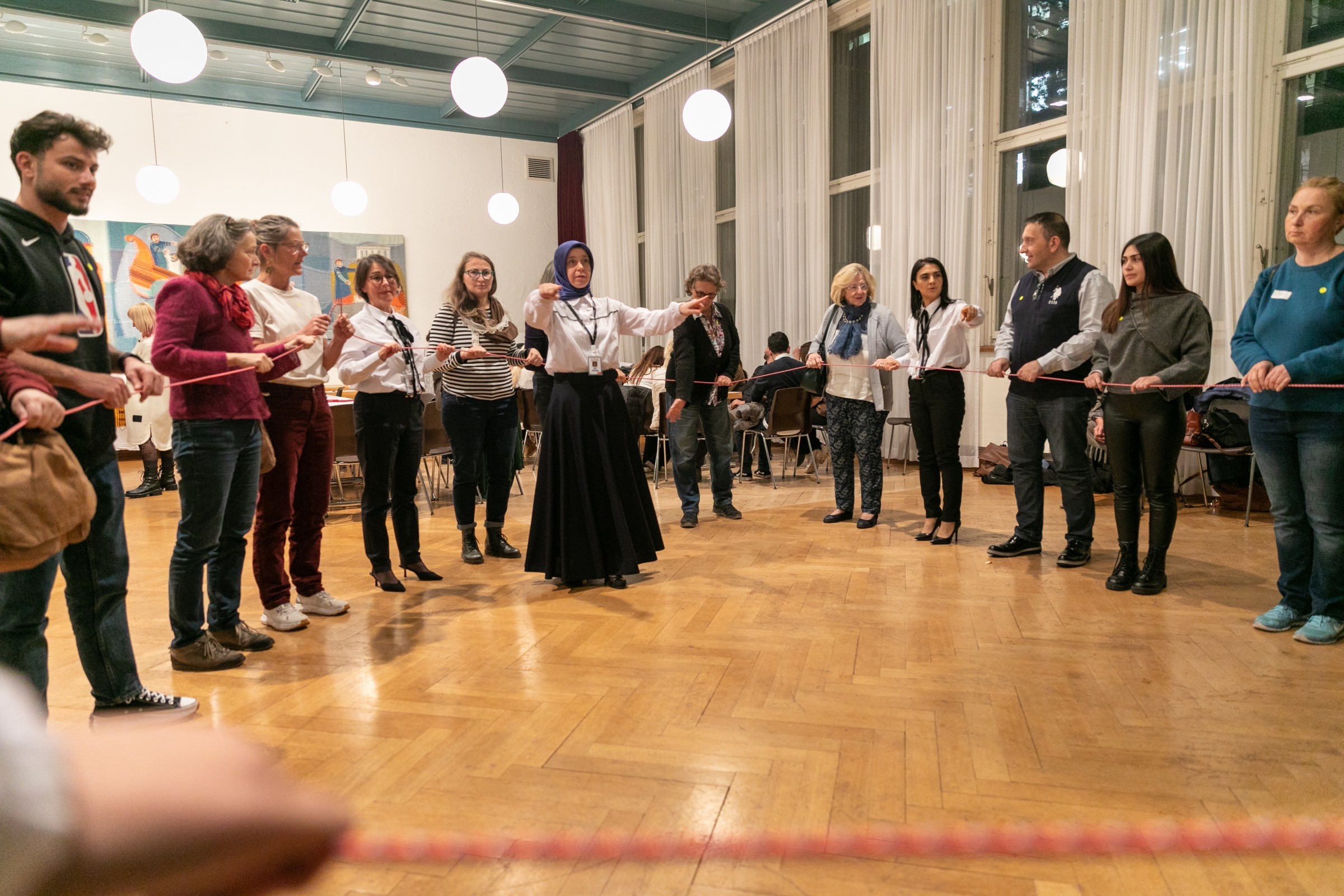Switzerland
This page has been automatically translated. The German version is authoritative. Thank you for your understanding.
Frieda implements participation projects with migrant women and activists in Switzerland, coordinates the «16 days of Activism Against Gender Violence» campaign, is involved in civil society networks and takes a stand on peace and migration policy issues.
Switzerland has almost 9 million inhabitants. Around 40% of them have migration experience. Around a quarter of the Swiss resident population is not entitled to vote because they do not have a red passport.
Migration
In recent years, it has become clear that not all refugees are received equally quickly, equally favourably and in an integrative manner. This unequal treatment highlights existing racist structures and colonial thought patterns, particularly in migration policy. They reinforce political and social discrimination against people who are portrayed as less worthy of protection due to racist attributions. Over the last 50 years, migration policy has increasingly produced images that label parts of society as «foreign».

Equality
Switzerland only ranks 21st on the Global Gender Gap Index 2023. Until 1971, Swiss women were excluded from political participation. Gender equality was enshrined in the Federal Constitution in 1981, but has not yet been fully implemented. Women earn less than men, even with the same qualifications, perform the majority of unpaid care work and feminised professions are devalued and poorly paid. The structures of early childcare are still inadequate. This prevents women in particular from developing their careers or forces them to delegate childcare and housework to other women in precarious situations. Especially as single parents, with a migration background and in old age, women have a significantly higher risk of poverty than men. The average pension difference (gender pension gap) is 37%. Despite some improvements, women are still underrepresented in decision-making bodies in politics and business. People with gender identities outside the gender binary face discrimination in Switzerland. Because there is no third gender entry, they are made invisible and receive too little support.
Gender-based violence
Gender-based violence and violence against women is an everyday occurrence in Switzerland. On average, a woman is murdered every fortnight because she is a woman, usually by her partner or ex-partner. At least one in two women has already suffered some form of sexualized violence. Domestic violence in particular is still largely regarded as a private matter in society and has only been treated as an official offence in law since 2004. The breeding ground for gender-based violence is stereotypical role models and patriarchal power structures, which still prevail in Switzerland. Gender-based violence and the inadequate, unequal protection against this violence usually indicate that different power structures overlap: Until recently, women without Swiss citizenship were threatened with the loss of their right of residence if they separated. For this reason, they often remained in violent relationships. In this respect, legal protection has improved with the adoption of Article 50 of the Foreign Nationals and Integration Act. The law now lists examples of domestic violence.
Switzerland ratified the Istanbul Convention in 2017. However, implementation is progressing slowly. Above all, there is a lack of support for particularly vulnerable victims of violence. The revision of the Sexual Offences Act 2023 with the «No means No» solution is an important step towards a consensus-based sexual offences law and a great success for civil society. The revised law has been in force since 1 July 2024.
Since 2008, Frieda has been coordinating the «16 Days of Activism Against Gender Violence», the largest violence prevention campaign in Switzerland. This was also extended to French-speaking Switzerland and Ticino in 2023.

Peace policy
In the last two years, we have observed a strong militarisation of the understanding of security. It is suggested that armament makes our lives safer. However, the fact that for large sections of the population, for example, gender-specific and racist violence, economic precarity or the consequences of neoliberal austerity pressures and the climate catastrophe are causing insecurity is being ignored. At the same time, the space for civil society engagement and peace policy voices is shrinking as social movements from the left-wing spectrum are criminalised.



